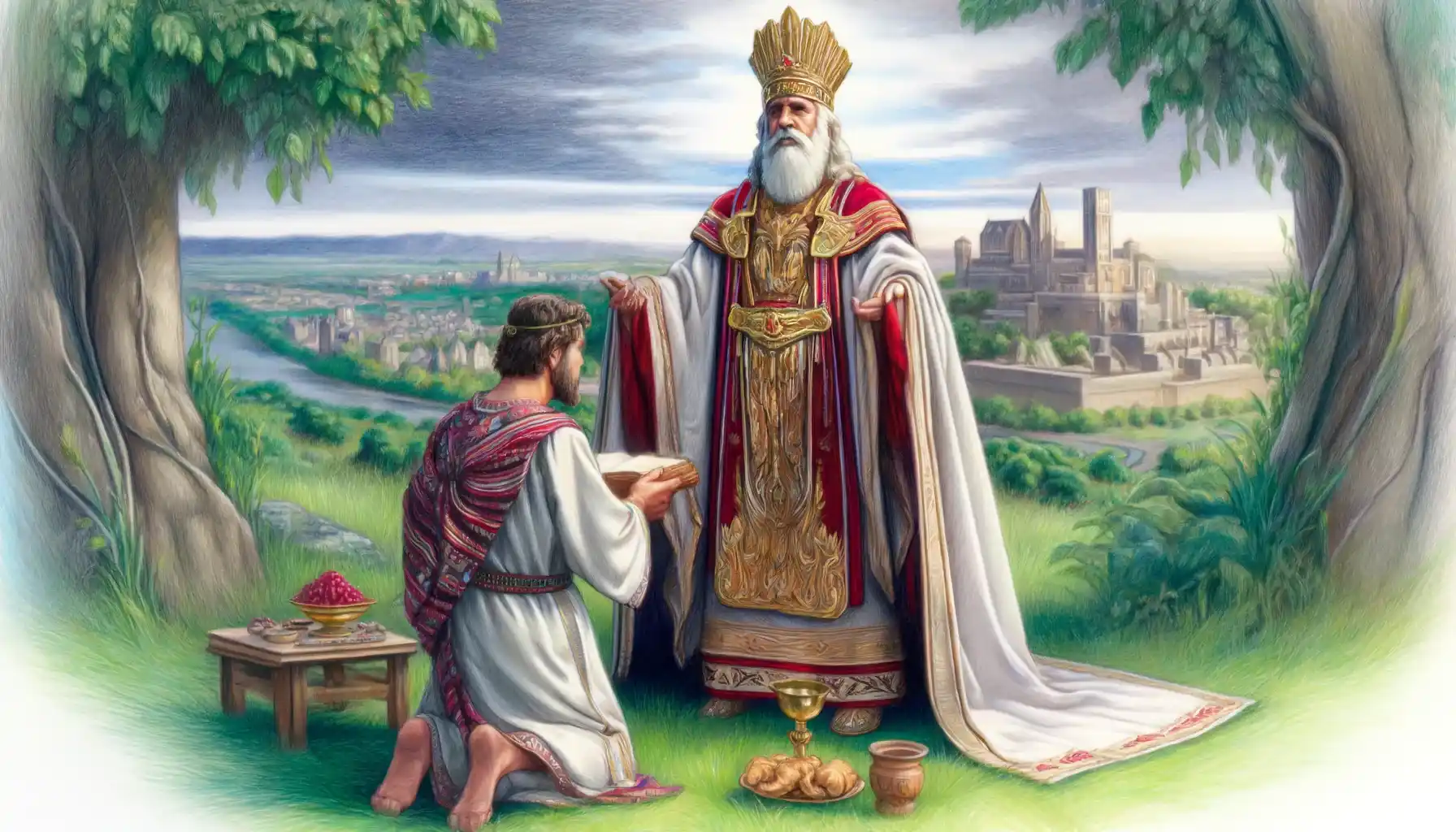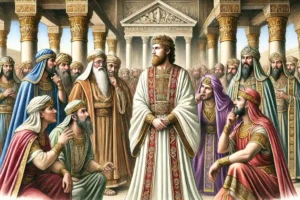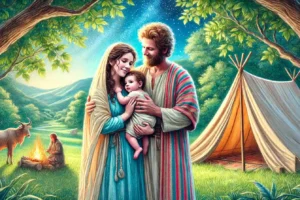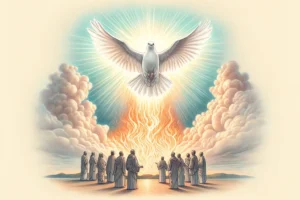
Melchizedek’s Mystery: King of Salem and Priest of the Most High God
Melchizedek is a mysterious figure who appears briefly in Genesis 14:18-20. He is notable for his abrupt entrance and exit from the narrative, being described as the king of Salem and priest of the Most High God without any genealogical background—a rarity in ancient texts where lineage is crucial. His interaction with Abraham includes blessing him and sharing bread and wine, prefiguring Christian communion rituals.
Quick Facts:
- Biblical Appearance: Melchizedek appears in Genesis 14:18-20.
- Titles: He is described as the king of Salem and priest of the Most High God.
- Abrupt Narrative: Melchizedek’s sudden appearance and disappearance add to his mystery.
- No Genealogy: Unusual in ancient texts, no lineage is provided for Melchizedek.
- Interaction with Abraham: Melchizedek blesses Abraham and shares bread and wine with him.
- Blessing: He blesses Abraham and God Most High for delivering Abraham’s enemies into his hand.
- Tithing: Abraham gives Melchizedek a tenth of all his spoils, acknowledging his priestly role.
- Prefiguring Christ: In Christian theology, Melchizedek is seen as a type of Christ, especially in his roles as king and priest.
- Mention in Psalms: Psalm 110:4 references Melchizedek, linking him to the eternal priesthood.
- New Testament References: The Book of Hebrews discusses Melchizedek extensively, highlighting his significance.
Biblical Appearance and Titles
Melchizedek’s brief but impactful appearance is recorded in Genesis 14:18-20. He is introduced with two significant titles: king of Salem (often associated with Jerusalem) and priest of the Most High God (El Elyon). These dual roles set him apart as both a political and spiritual leader.
Abrupt Narrative and Mystery
Melchizedek’s abrupt entrance and exit from the biblical narrative add to his enigmatic nature. Unlike other key figures in Genesis, there is no mention of his ancestry or descendants. This lack of genealogical information is highly unusual in ancient texts, where lineage was crucial for establishing identity and legitimacy.
Interaction with Abraham
Melchizedek’s interaction with Abraham is significant. He meets Abraham after the latter’s victory over the kings who had captured his nephew Lot. Melchizedek brings out bread and wine, symbols that resonate deeply in Christian sacramental theology, particularly in the context of communion (Genesis 14:18). He then blesses Abraham, acknowledging God’s role in Abraham’s victory and underscoring his own authority as a priest of the Most High God.
The Blessing and Tithing
Melchizedek blesses Abraham with these words: “Blessed be Abram by God Most High, Creator of heaven and earth. And blessed be God Most High, who has delivered your enemies into your hand” (Genesis 14:19-20). In response, Abraham gives Melchizedek a tenth of all the spoils of battle, recognizing Melchizedek’s priestly authority and establishing the practice of tithing in the biblical tradition.
Prefiguring Christ
In Christian theology, Melchizedek is often seen as a prefiguration of Christ. This typological interpretation is particularly emphasized in the Book of Hebrews, where Melchizedek is presented as a model for Jesus’ eternal priesthood. Hebrews 7:3 describes Melchizedek as “without father or mother, without genealogy, without beginning of days or end of life, resembling the Son of God, he remains a priest forever.” This connection highlights Melchizedek’s timeless and divine priesthood, paralleling Christ’s role as the eternal high priest.
Mention in Psalms
Melchizedek is referenced in Psalm 110:4: “The Lord has sworn and will not change his mind: ‘You are a priest forever, in the order of Melchizedek.’” This verse is significant in both Jewish and Christian traditions, linking Melchizedek’s priesthood to the Messianic expectations fulfilled in Jesus.
New Testament References
The New Testament elaborates on Melchizedek’s significance, especially in the Book of Hebrews (chapters 5-7). Hebrews presents Melchizedek as a superior priesthood to the Levitical order, arguing that Jesus, like Melchizedek, holds an eternal priesthood that transcends the limitations of the Levitical priesthood. This interpretation underscores the unique and preeminent role of Jesus in Christian theology.
Legacy and Theological Significance
Melchizedek’s legacy lies in his unique portrayal as both king and priest, a combination rarely seen in the Old Testament. His interaction with Abraham and his eternal priesthood make him a pivotal figure in biblical typology, pointing to the future Messiah. His role in Genesis and subsequent references in Psalms and Hebrews highlight the continuity and fulfillment of God’s redemptive plan through Jesus Christ.
In conclusion, Melchizedek’s mysterious figure, with his lack of genealogy, dual roles, and prefiguration of Christ, holds significant theological importance. His brief appearance in Genesis leaves a lasting impact, linking the Old and New Testaments and emphasizing the themes of divine priesthood, kingship, and the ultimate fulfillment of God’s promises through Jesus.



